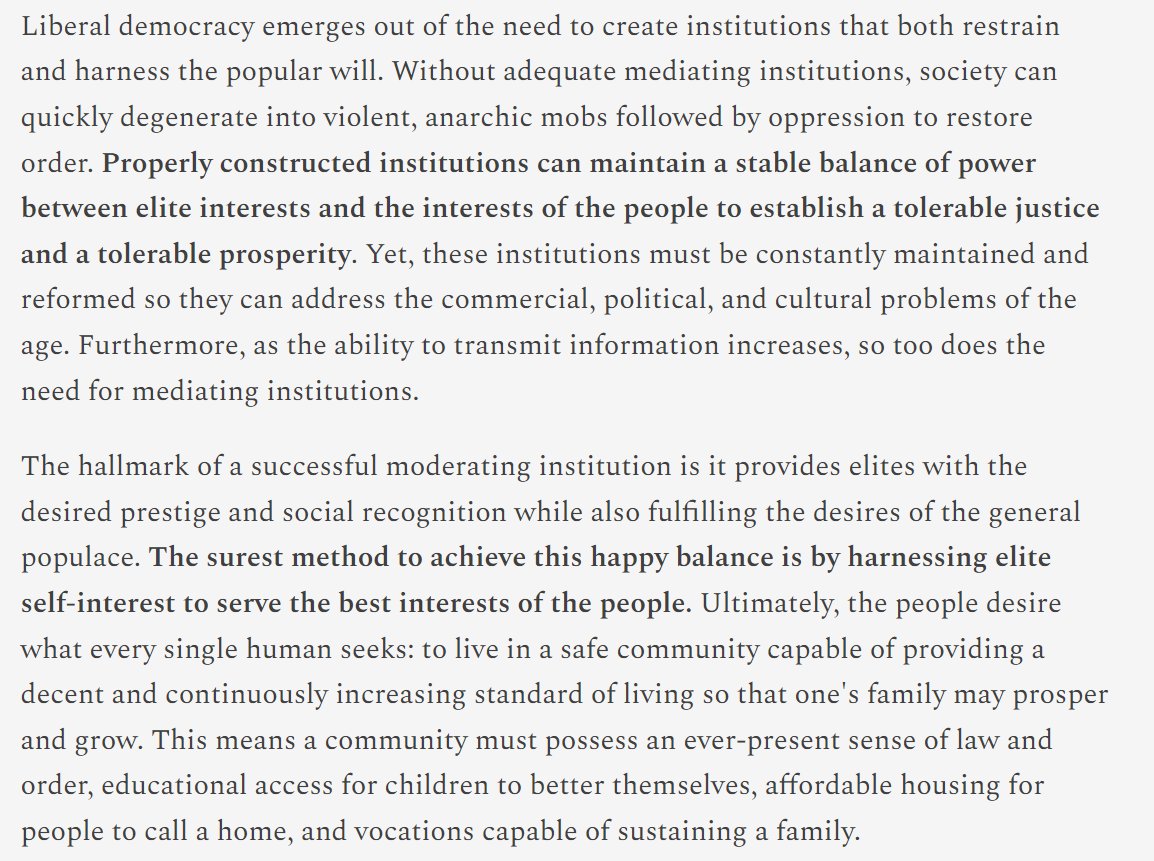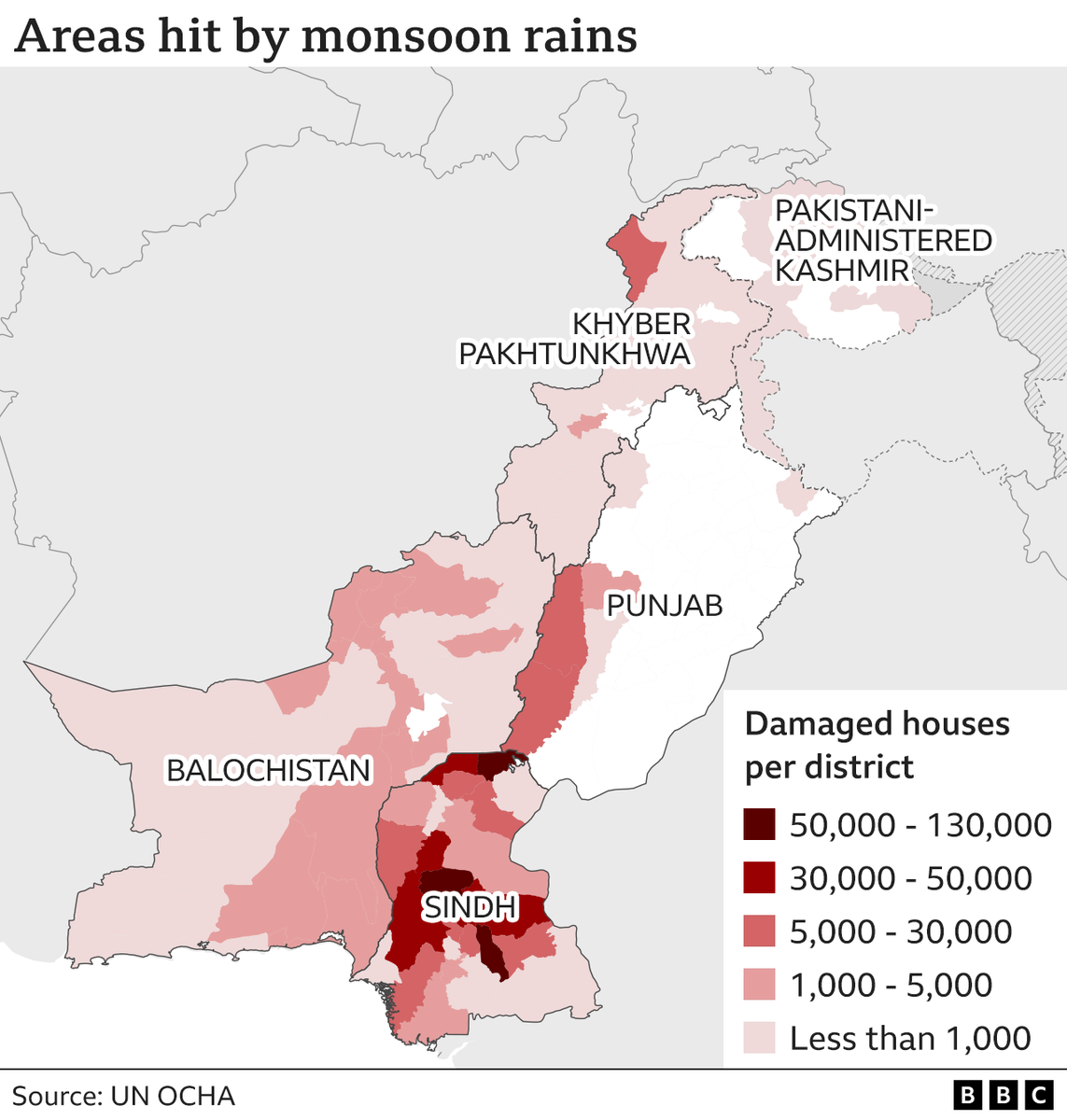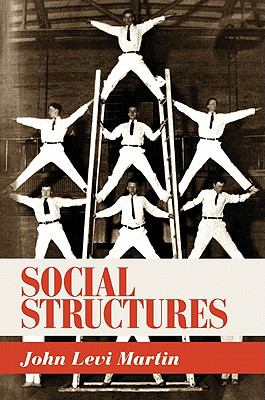🧵on Elites, Decision Making, & Institutions:
The reason so many things are falling apart is professional classes are so far removed from the actual people that get things done, i.e. manufacturing, construction, transportation.
There are no mediating institutions anymore. 1/n
The reason so many things are falling apart is professional classes are so far removed from the actual people that get things done, i.e. manufacturing, construction, transportation.
There are no mediating institutions anymore. 1/n
In the short time I've been back in ag consulting, I see how so many decisions are based on data that's lacking any context for how the world actually works. There's so much "tribal" knowledge floating around in industry that doesn't translate over into our data-driven world. 2/n
Elites tend to be well-versed in theory. It's what's emphasized at the top schools. How things actual work in practice is only learned through experience by being a grunt on the ground.
Both are necessary for organization success, but we've divorced these two groups. 3/n
Both are necessary for organization success, but we've divorced these two groups. 3/n
Like NCOs in the military, any organization needs highly competent professionals outside the educational elite pipeline. You don't want a bunch of West Pointers calling all the shots in combat, but that's essentially what's happening all across American society. 4/n
There's been a systematic destruction of America's mediating social institutions across politics, commerce, and culture. This has paralleled the destruction of America's middle class.
Americans increasingly find themselves grouped into upper-middle class or working class. 5/n
Americans increasingly find themselves grouped into upper-middle class or working class. 5/n
There are a few disparate reasons for this trend that I'll try to summarize briefly:
1) globalization
2) the cult of "efficiency" (profit)
3) the Matthew Effect (network theory)
6/n
1) globalization
2) the cult of "efficiency" (profit)
3) the Matthew Effect (network theory)
6/n
1) Globalization:
The TLDR is globalization is a boon human prosperity *across* nations but is fueling rising disparity and inequality *within* nations.
The benefits of globalization are distributed across society, but the costs are concentrated in segments. /n
The TLDR is globalization is a boon human prosperity *across* nations but is fueling rising disparity and inequality *within* nations.
The benefits of globalization are distributed across society, but the costs are concentrated in segments. /n
2) Cult of Efficiency
Things like the invention of the internet, the end of the Cold War, the rise of the shipping container, and China's economic liberalization in the 90s made some form of globalization inevitable, but the cult of efficiency (profit) was gas on the fire. 8/n
Things like the invention of the internet, the end of the Cold War, the rise of the shipping container, and China's economic liberalization in the 90s made some form of globalization inevitable, but the cult of efficiency (profit) was gas on the fire. 8/n
The cult of efficiency is really the cult of profit. It's the idea that the highest moral good for a company, and society, is maximizing profit. This is a direct offshoot of Milton Friedman's viewsof political economy and reinforced by Jack Welch's view of shareholder value. 9/n
This libertarian approach hit its zenith with the neoliberal movement of the 90s. Free trade for its own sake became dogma.
Meanwhile McKinsey began pushing execs to gut middle management, those mediating institutions, in order to drive more profits. 10/n
x.com/ndcarson/statu…
Meanwhile McKinsey began pushing execs to gut middle management, those mediating institutions, in order to drive more profits. 10/n
x.com/ndcarson/statu…
3) Matthew Effect
This is a term in network theory that describes how trade and new opportunities presented by technology are prone to being monopolized by a few players at the top of social hierarchy.
This is the natural order unless you have mediating institutions. 11/n
This is a term in network theory that describes how trade and new opportunities presented by technology are prone to being monopolized by a few players at the top of social hierarchy.
This is the natural order unless you have mediating institutions. 11/n

By gutting mediating institutions and dismantling antitrust laws and pushing the moral economic framework that "greed is good", you end up with behemoth corporations and government department run by "really smart people" (academically) but have no idea how the world works. 12/n
The irony of the cult of efficiency (profits) is that the size of institutions eventually become so large they are unable to function. Leaders become disconnected with the facts on the ground because the grunts don't actually have a voice in making decisions. 13/n
Complexity of institutions operates on a marginal cost to marginal benefit tradeoff. Eventually, institutions become so complex that they have to shrink in order to find new equilibrium. That's where we're at now.
We need to devolve our institutions to make them run better. 14/n
We need to devolve our institutions to make them run better. 14/n
The problem is elites are still caught in the mindset of "economies of scale." The idea of fragmenting institutions so that middle management and normal people have more of a voice is anathema.
These "very smart people" are too prideful to admit what they don't know. 15/n
These "very smart people" are too prideful to admit what they don't know. 15/n
Unfortunately for all of us, things will continue to get worse until our ruling elites across politics, commerce, and culture recognize that reform of our mediating institutions is necessary for American society to flourish.
This is the root of populism. 16/n
This is the root of populism. 16/n
The irony of populism is that while it is anti-status quo elites, it needs reform-minded elites to found and manage new institutions. Only by elites and the people working together, can America achieve the political, economic, and cultural reform it so desperately needs. 17/n 

The best way to try and forge this coalition is elites needs to be more open-minded and learn how the world really works at the ground level.
Populists need to spend some time reading the books that dominate elite worldviews to better understand how to approach them. 18/n
Populists need to spend some time reading the books that dominate elite worldviews to better understand how to approach them. 18/n
Populism needs to accept that it's not going to achieve overnight reform and cooperation with today's elites is necessary.
Elites need to realize that the foundation of their power and prestige is unstable, and reform today is preferable to risking it all tomorrow. 19/n
Elites need to realize that the foundation of their power and prestige is unstable, and reform today is preferable to risking it all tomorrow. 19/n
We are increasingly at a crossroads. Americans know their institutions are broken, and they desire change. Sadly, our political discourse is dominated by demagogues and influencers.
We need to start small, start local, and try to fix things one step at a time. 20/fin
We need to start small, start local, and try to fix things one step at a time. 20/fin
• • •
Missing some Tweet in this thread? You can try to
force a refresh

 Read on Twitter
Read on Twitter








